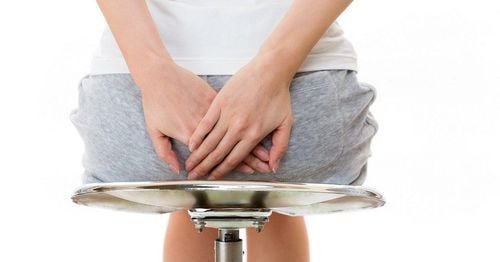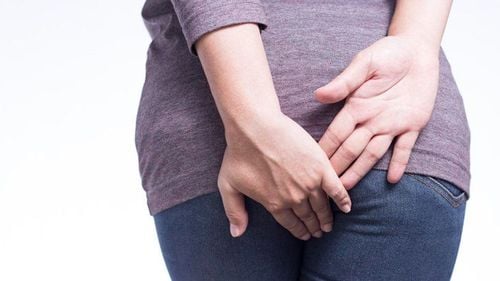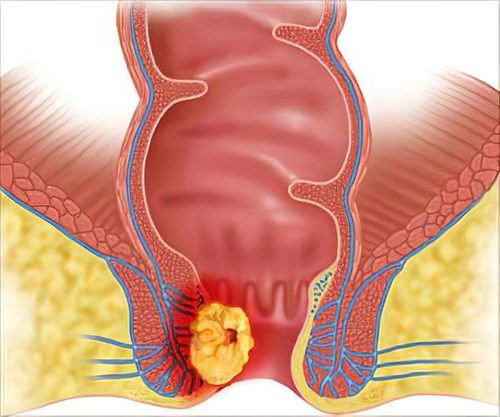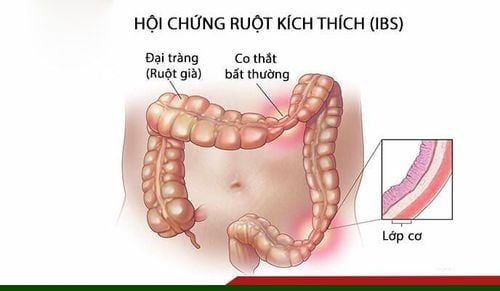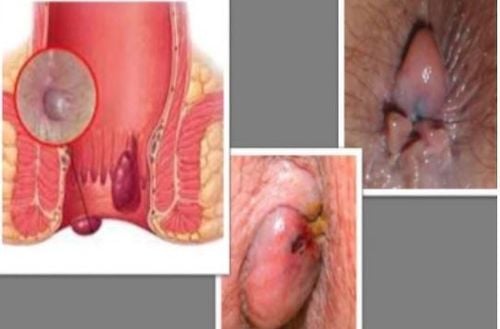Hemorrhoids are a common condition that causes swelling, pain, and discomfort around the anus. Many people with hemorrhoids wonder whether it’s safe to have sex, whether anal sex is okay, or how long after hemorrhoid surgery it is safe to resume sexual activity. Here are some helpful answers to these common questions.
1. What happens if hemorrhoids are left untreated?
Hemorrhoids cause the anus to stretch excessively, leading to swelling, discomfort, and bleeding during bowel movements. It is common among those with chronic constipation, diarrhea, sedentary jobs, lack of physical activity, pregnant women, and those with pelvic tumors.
Hemorrhoids can be divided into two types: Internal hemorrhoids and External hemorrhoids
- Internal hemorrhoids: Stage 1 (the hemorrhoid swells but does not protrude outside), Stage 2 (the hemorrhoid protrudes during bowel movements and then retracts on its own), Stage 3 (the hemorrhoid protrudes more during bowel movements and is difficult to push back in), and Stage 4 (the hemorrhoid protrudes outside the anus, and cannot be pushed back in with the hand).
- External hemorrhoids: There are 3 stages: mild stage (feeling of fullness or discomfort around the anus), severe stage (large hemorrhoids at the anal opening causing difficulty during bowel movements), and mixed hemorrhoids (both internal and external hemorrhoids are present, with hemorrhoids extending outside).
Patients will experience significant discomfort when suffering from hemorrhoids, as it causes bleeding, pain during bowel movements, itching, and discharge around the anus. If left untreated for a long period, it can lead to several complications such as:
- Bright red bleeding during bowel movements: This is a typical symptom of hemorrhoids. The amount of blood can vary depending on the severity of the condition, ranging from blood mixed in the stool to drops of blood or even spurting like in a gushing wound. Prolonged bleeding can lead to anemia and body weakness.
- Severe pain around the anus or inside the anal canal: This is caused by the formation of blood clots in the hemorrhoidal veins, which can lead to thrombosed hemorrhoids, often accompanied by inflammation and swelling of the anal mucosa, causing further discomfort.
- Anal infection: Symptoms include itching, a burning sensation around the anus, moist discharge, and redness with swelling in the anal canal, leading to painful irritation. If untreated, hemorrhoidal necrosis or ulceration can occur, which can lead to serious health consequences such as sepsis, cancer, or even life-threatening conditions.
2. How is hemorrhoid disease treated?
Currently, hemorrhoid disease is treated with both medical and surgical methods, depending on the severity of the condition. The doctor will consider the most effective treatment based on the patient's condition.
Medical treatment:
- Only applied for treating internal hemorrhoids at stages 1 and 2.
Involves the use of medications that help stabilize vein walls, anti-inflammatory drugs, antibiotics, pain relievers, and treatments for constipation. - Topical treatments, such as ointments applied externally or suppositories inserted deep into the anus, are commonly used for local effects.
Surgical treatment:
- This method is used for treating internal hemorrhoids at stages 1, 2, and 3.
- Minimally invasive procedures such as cryotherapy (freezing hemorrhoids with liquid nitrogen), infrared coagulation (using infrared light to treat hemorrhoids), sclerotherapy (injecting a solution into the hemorrhoid), rubber band ligation (using a rubber band to constrict the hemorrhoid), and anal dilation are commonly employed.
- In cases of external hemorrhoids with blood clots, procedures such as excising a ring of mucosa from the anal canal, performing a Longo procedure, or removing individual hemorrhoids may be used.
3. How long after hemorrhoidectomy can sexual activity be resumed?
Questions such as whether it is advisable to engage in sexual activity with hemorrhoids or whether sexual activity can be resumed after hemorrhoidectomy are important to understand before deciding to undergo the procedure. Sexual activity can impact the healing process of the anus after hemorrhoidectomy. Therefore, patients should avoid sexual activity immediately after the surgery because:
- After hemorrhoidectomy, the anus area will experience mild pain and swelling, and patients will not feel inclined to engage in sexual activity at that time. It is recommended to rest for at least two weeks until these sensations disappear completely.
- Overstretched skin areas require about 30 days to fully heal, preventing the recurrence of hemorrhoids.
- Sexual activity can be resumed at least one month after hemorrhoidectomy.
A common question is whether anal intercourse can be performed if someone has hemorrhoids. The answer is yes, as anal intercourse typically does not cause pain. However, if pain or bleeding occurs during intercourse, it is advised to refrain from sexual activity until the condition heals, as it can negatively affect hemorrhoids by causing irritation, bleeding, mucosal tearing, and increasing the risk of HIV transmission. In cases where hemorrhoidectomy has been performed, anal intercourse should be avoided for 3 to 6 months.
4. Post-Hemorrhoidectomy care instructions
In addition to refraining from sexual activity after hemorrhoidectomy, patients need to follow certain guidelines to promote quick recovery and prevent recurrence of hemorrhoids:
- Limit movement for the first day after the surgery to avoid friction and bleeding in the anal area.
- Clean the wound regularly, especially after using the restroom. Gently wash the area with warm water, avoiding rubbing or harsh cleaning, which can cause injury and infection.
- Choose soft, easily digestible foods (such as porridge or soup) to aid bowel movements and avoid constipation. Avoid hard, spicy, fried, oily foods, alcohol, coffee, foods with caffeine, bread, sticky rice, pastries, and chocolate, as they may contribute to constipation.
- Limit physical activity and avoid intense exercises such as running, cycling, or sitting for extended periods for at least two weeks after the surgery.
- Regular follow-up appointments with your doctor are crucial, especially if you experience prolonged pain or bleeding, to monitor wound healing.
- Eat high-fiber and vitamin-rich foods, such as fruits, vegetables, and whole grains, to prevent constipation and improve digestion.Foods particularly beneficial for hemorrhoid patients include honey, sweet potatoes, flounder fish, dried nuts, soybeans, cashews, spinach, oats, avocados, peanut butter, and seedless raisins. Iron-rich foods can help prevent anemia caused by bleeding from hemorrhoids.
- Establish regular bowel habits: Try to use the restroom at set times, avoid sitting for too long, and do not strain excessively, as this can lead to the formation of new hemorrhoids.
- Stay hydrated: Aim to drink between 1.5 and 2.5 liters of water daily, depending on body weight.
In summary, the answer to whether anal intercourse can be resumed after hemorrhoidectomy is that patients should avoid sexual activity and pay attention to safe practices when engaging in anal sex to prevent aggravating the condition. If hemorrhoids do not improve or if there is significant pain and bleeding, patients should consult their doctor for timely examination, advice, and treatment.
To arrange an appointment, please call … or make your reservation directly HERE. You may also download the MyVinmec app to schedule appointments faster and manage your reservations more conveniently




